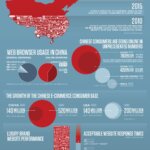Times have changed, with women in some sectors now equalling the earning power of their male counterparts. But there is still a perception that proper money management and entrepreneurship is the domain of men, and the perception that women seeking the wisest path in investing in the future should hand their financial affairs over to their husbands or mostly-male financial advisors.
Remember, though, that the perception that these routes are the most secure or successful is not necessarily correct. With more women choosing to control their own financial futures, we can now see that women are, on the whole, better investors than men, and possibly even better in managerial roles.
It turns out that the personality traits which men, through biology, tend to come by most easily, can actually be to their detriment when it comes to investing and trading. Confidence, aggression and risk-taking behaviour have long been seen as essential in building a profitable investment portfolio, but time has shown that in the long run, caution, research and careful planning go a long way. And guess who has these avenues covered? Yes, women.
Women are excellent investors, as they tend to research their options thoroughly, take fewer risks than men, and invest for longer periods of time, generally weathering the ups and downs of the market through to successful outcomes. On the other hand, men can be overconfident, and treat hunches as truth. The may take unnecessary risks, and lose out through excess trading, always being on the lookout for better performing investment options. Following the GFC of 2008, many male investors reacted by selling stock low, investing elsewhere and trying to recover their losses quickly, whereas the prevailing female reaction was to hang on until stock recovered, which in many cases proved the better financial choice.
Studies show that women investors are more likely to ask for advice, and seek information that may challenge their own assumptions, making sure their final decision reflects all available information. This thorough and patient approach allows them to make objective decisions, and develop clear investment strategies that they can stick to, and reduces the instance of rash reactions when the market shifts. Not only does it result in less hasty selling, it also allows these cautious investors to let go of poorly performing stock, without feeling a personal loss or failure.
Female entrepreneurs show similar management traits, and are learning quickly from lessons the male-dominated business sphere is sharing. Women in business are also reaching out to one another, sharing their wealth of information, and building networks that strengthen all connections within them.
Given these facts, one of the wisest choices an organisation could make would be to develop a strategy to attract more female investors, and make room for more women on executive committees. Time is showing the companies that do so are outperforming the rest.
How much stronger and more balanced would your organisation be if you were able to draw equally on the talents of both genders? Two halves always make a whole, and the power is in the mix. Gender balanced leadership and management will smoothly and dynamically drive your business forward.
Written by: Sonia McDonald






























